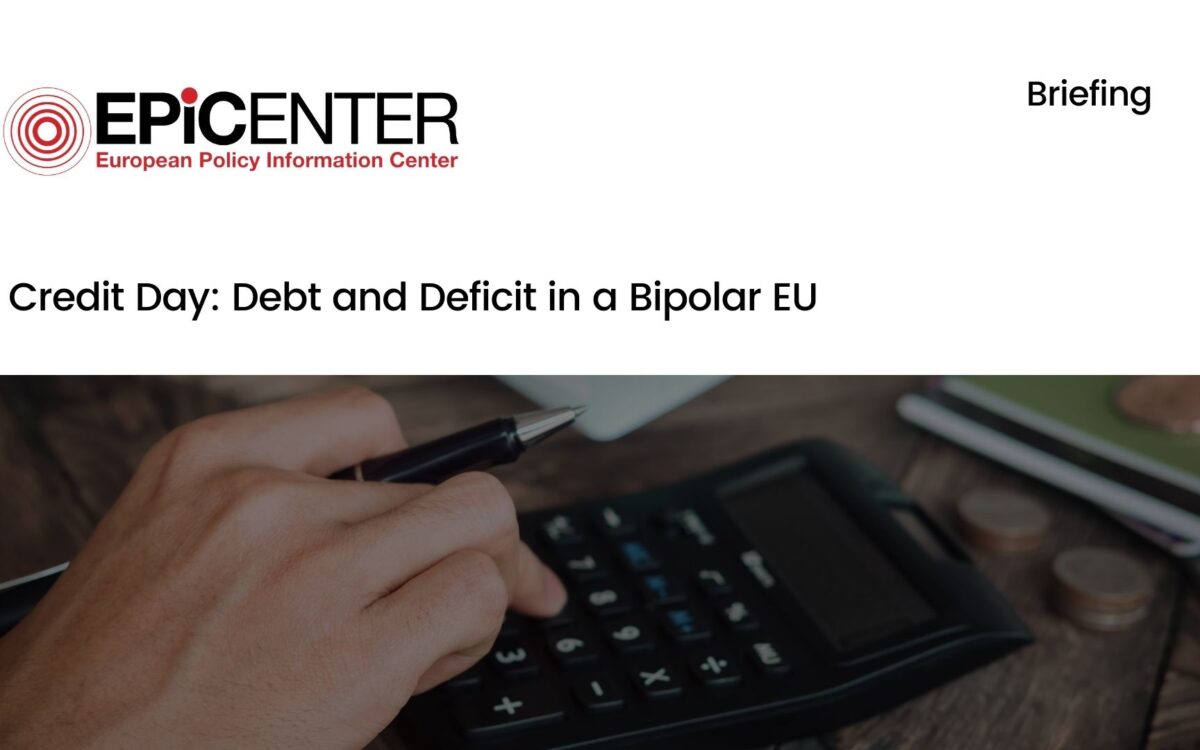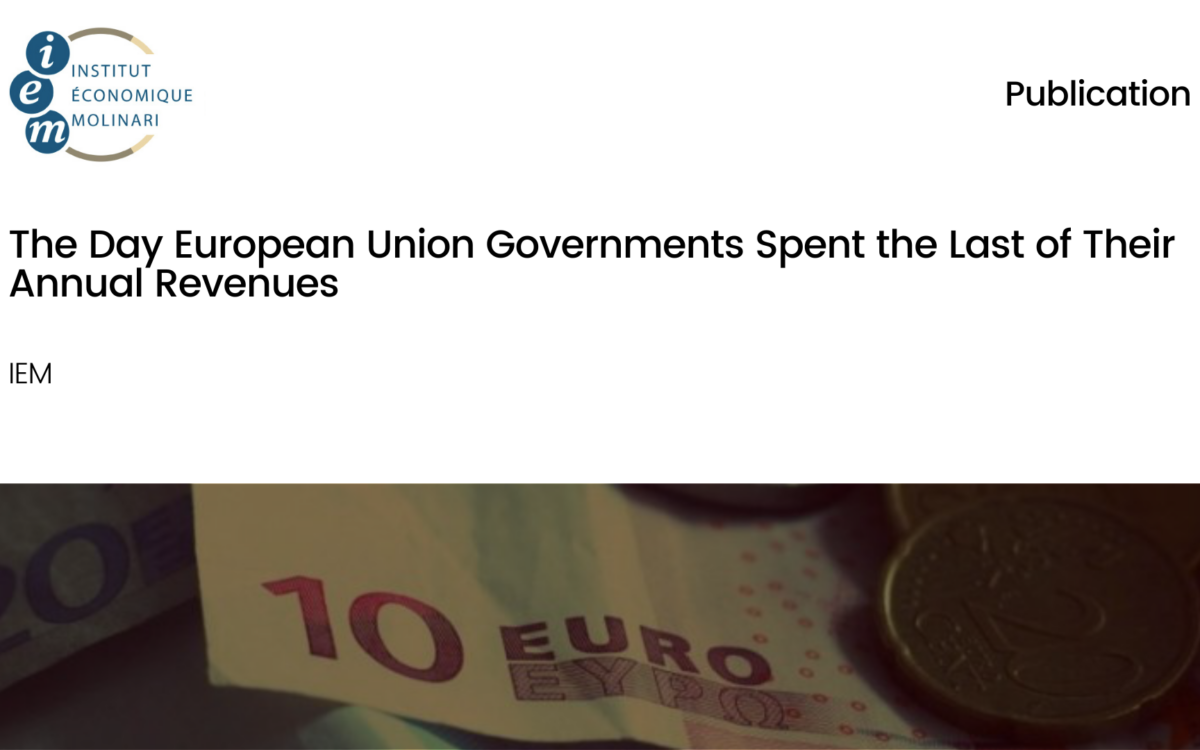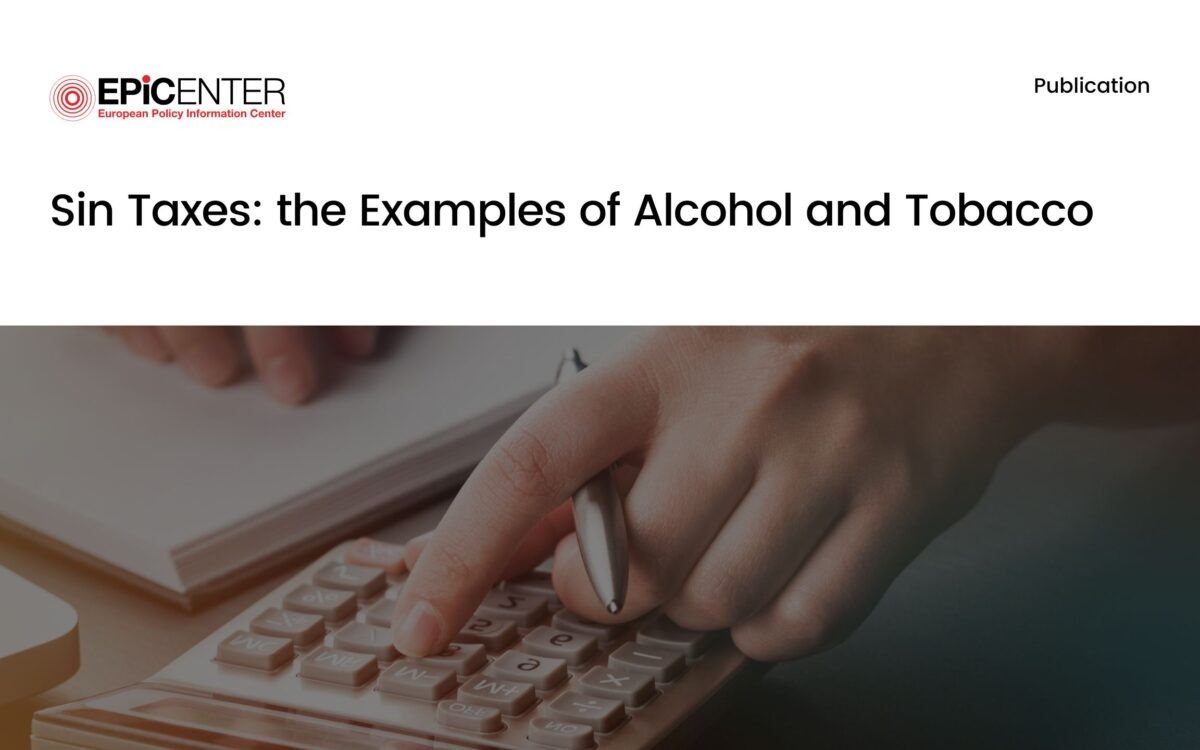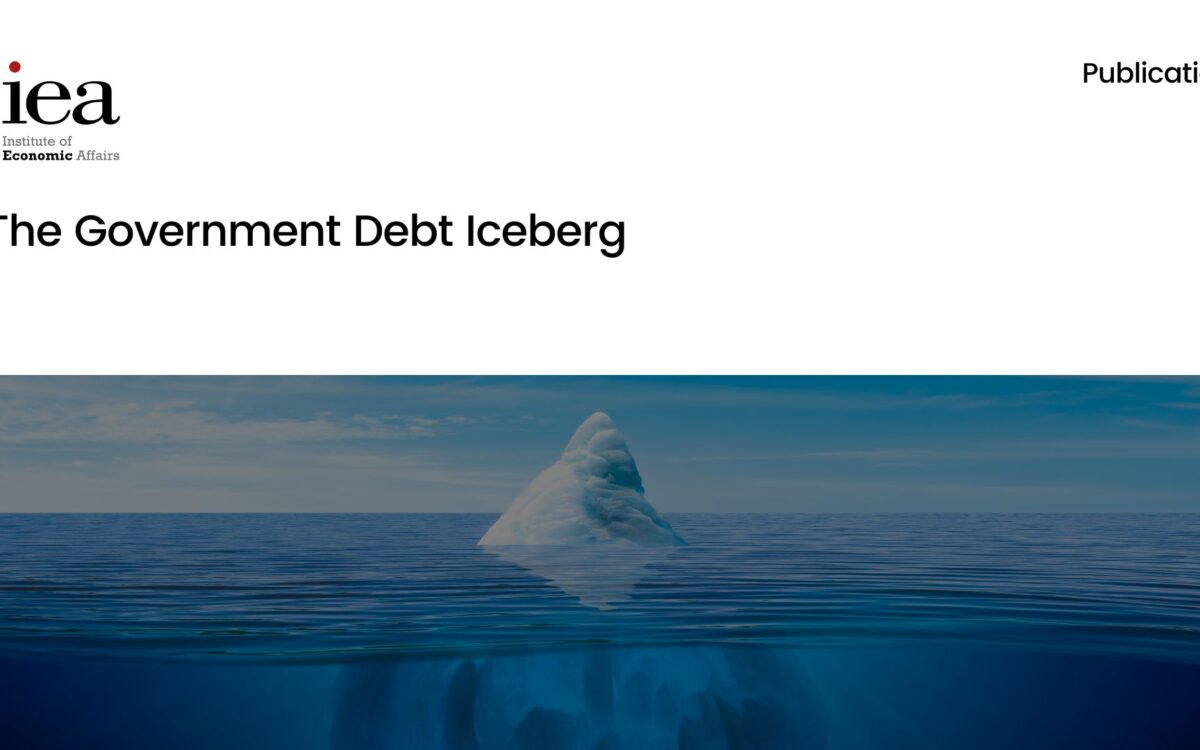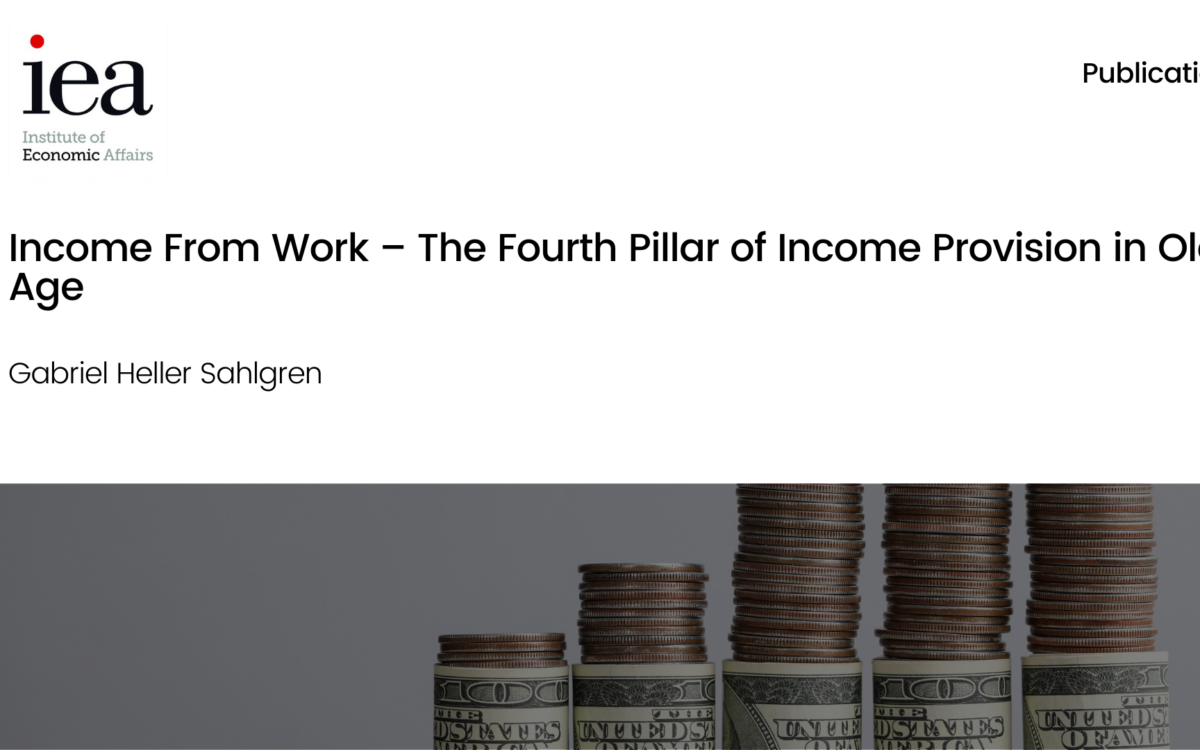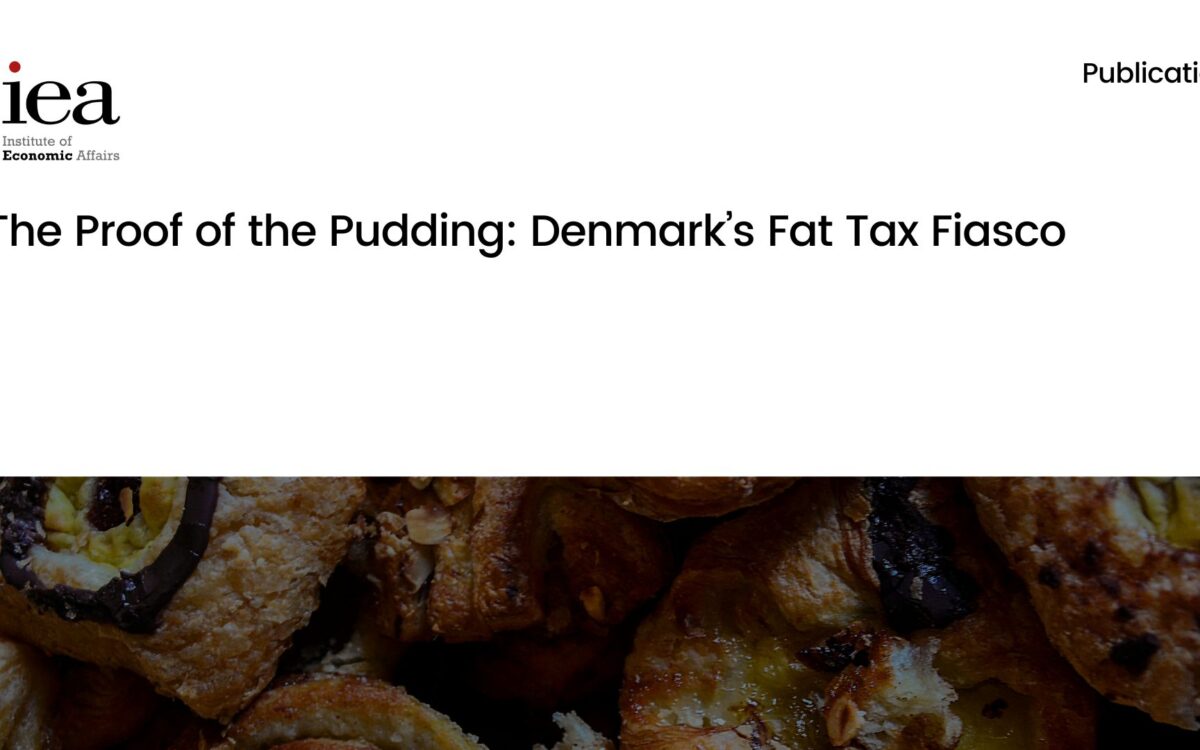December 1, 2017
6 December marks Credit Day across the European Union. This is the day when, on average, European countries’ central administrations will exhaust their annual tax revenue and start living on credit to meet their spending commitments, according to a study by the Institut Economique Molinari.
